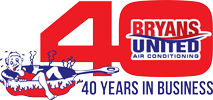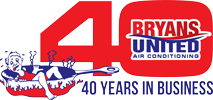You probably already know that you should change your air filter at least every three months. Did you also know that some filters keep your air cleaner than others do? Learn more about the different types of filters and how to choose the best one for your home.
Compare Filters with MERV Ratings
In 1987, the American Society of Heating, Refrigerating and Air-Conditioning Engineers (ASHRAE) developed a system for comparing air filters. They called it MERV, or minimum efficiency reporting value. Based on a residential scale ranging from 1 to 16, it corresponds to the percentage of particle irritants a filter removes. For most people though, material quality isn’t the only factor involved. You probably also want to balance the quality of the filter against the price.
Comparing Cost against Usefulness
Some filters may strain out almost all particles, but they are made of expensive high-tech materials that strain your budget and air conditioner, resulting in higher energy bills. On top of that, you may not even see any additional health benefit by being overcautious. That’s why you need to take the price of the filter into consideration too.
MERV rating and Particle Types
To make choosing a filter easier, you can use groupings based on the type of particles filtered out. Use the following groups to determine which range is likely to meet your needs:
- 0-3 – Filters rated MERV 3 or less aren’t even made. You can ignore this range.
- 4 – For homes, filters need to be at least a MERV 4. Window-unit air conditioners typically use these as a wire mesh.
- 5-8 – Filters in this range remove most household irritants. Common allergens removed include mold spores, pet dander, hair spray and dust mites.
- 9-12 – Look to this range for the best residential air filters. These filters remove lead dust, car emissions and flour.
- 13-16 – Because they remove bacteria, filters in this range are used in hospitals and commercial buildings. They also filter sneeze droplets, smoke and makeup. Most household HVAC systems will not handle a filter in this range. Although, some of the higher-end systems may use a filter rated MERV 13.
- 17-20 – You won’t find residential AC filters in this range. However, it’s worthy of noting because it can filter out viruses. Most HEPA filters fall in this category.
HEPA Filters in AC Units
Due to popularity in vacuum cleaners and air purifiers, HEPA filters have gained notable attention in the public eye. Some people have started asking for HEPA filters in their AC system. Unfortunately, these types of filters are too thick for HVAC systems. A MERV 12 or 13 filter will strain out most bacteria though. If you need something more powerful, then consider installing an air purifier with a HEPA filter for viruses.
Bryans United in New Orleans, LA
For more than 30 years, Bryans United has been serving New Orleans, LA, and nearby communities. We perform installations, maintenance and air conditioning repair on all types of systems.
Written by Zach Mouton

